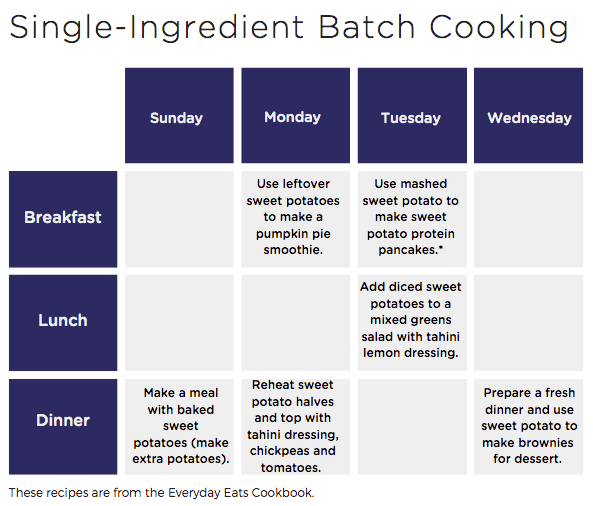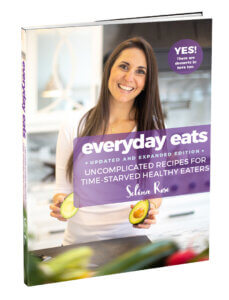Over the years, I’ve been called on for my expertise in nutrition, stress management and mindfulness to write articles that will help women have an edge in their busy lives.
As a result, I’ve talked to a lot of women in the comments and through PMs and gained insight into the lives of what’s causing ambitious women in North America to struggle with burnout and exhaustion.
I’ve put together a list of 5 things that are keeping women from achieving everything they want in life.
So, if you want to know what’s been holding you back, take a few moments to dig in because here’s what I learned…
1. Women are portrayed as “Superwoman” in the media creating an impossible standard we try to (but never really can) live up to
We’re the sexy wives, nurturing mothers, attentive daughters, and the powerhouses that our teams depend on at work… and that’s it on a good day.
Women see themselves portrayed in the media as Superwoman and it creates the belief that we need to live up to that image. We stress ourselves out trying to be everything to everyone, and when we feel we’re running out of steam, we’re hard on ourselves because we think it shouldn’t be that way.
Trying to do it all is burning us out. Only by facing the limitations of our energy can we be purposeful about where we spend our time and attention. Slowing down is a blessing that allows us to be intentional about how we spend our time and what we commit to.
2. Body image issues affect women of every size
One of the secret devastations women go through is reaching their “goal weight” – only to find they still look in the mirror and still hate what they see.
The thought “once I reach my ideal body size I’ll be happy” leaves them crushed when they realize that the body image issues they face are present no matter what size they fit into.
Feeling comfortable and confident in your skin is an inside job, and it comes from developing self-compassion and healthy habits to back it up.
3. It’s hard for women to slow down…
Because hustle and productivity are praised in our culture.
The idea is “I’m only valuable when I’m productive” – therefore resting is seen as a weakness that makes us question our worth.
The result? Women push through, ignore their body’s needs and sacrifice their health for their work, their families, and their figure.
As long as we believe the messages that tell us to always be “doing,” our bodies are the sacrifice we make for our worthiness.
4. Saying “no” is harder for women in the workplace than men
Women feel they have something to prove at work, like they have to earn their place at the boardroom table. It wasn’t that long ago (my great-grandmother’s generation) that women were given the right to vote, so it’s no surprise that in some circumstances women still feel they’re not taken seriously.
This is heightened when they come back from mat leave.
Women feel pressure to please and prove they’ve still got it and can be on par with their colleagues, instead of honouring their bodies and their needs.
5. All women diet and then get fed up with dieting
I’ve yet to meet a woman who hasn’t tried in some way to alter her food intake to change her body.
Yet,there comes a time when we realize that dieting is not the answer (it just takes some of us longer to get there than others. No judgment).
That’s when we start to look for something sustainable. It’s just a matter of how long we stay on the train trying before we decide to get off.
Women realize they don’t know how to eat properly when they finally give up the diets and look for something sustainable.
We’re steeped in these thoughts and beliefs culturally so we don’t see the patterns we play out, or ourselves clearly.
Tools like self-awareness, active eating, and practicing presence are the critical keys necessary for women to overcome the unconscious biases that they act out daily.
Which one of these insights do you recognize the most in yourself?
Is it not saying “no” when you wish you could?
Feeling like you have to work twice as hard as the men at work to get the same recognition?
Having to be “superwoman” all the time (even when it’s too much to handle)?
I’d love to start a conversation here that helps us explore what’s caused us ambitious, capable women like the ones in the Practice Presence group to end up in a cycle of burnout.
So please, share your thoughts.
This is a safe space with zero judgement.
And hopefully we can start to undo some of the damage and obstacles that have kept you from becoming the confident, accomplished woman you strive to be.






